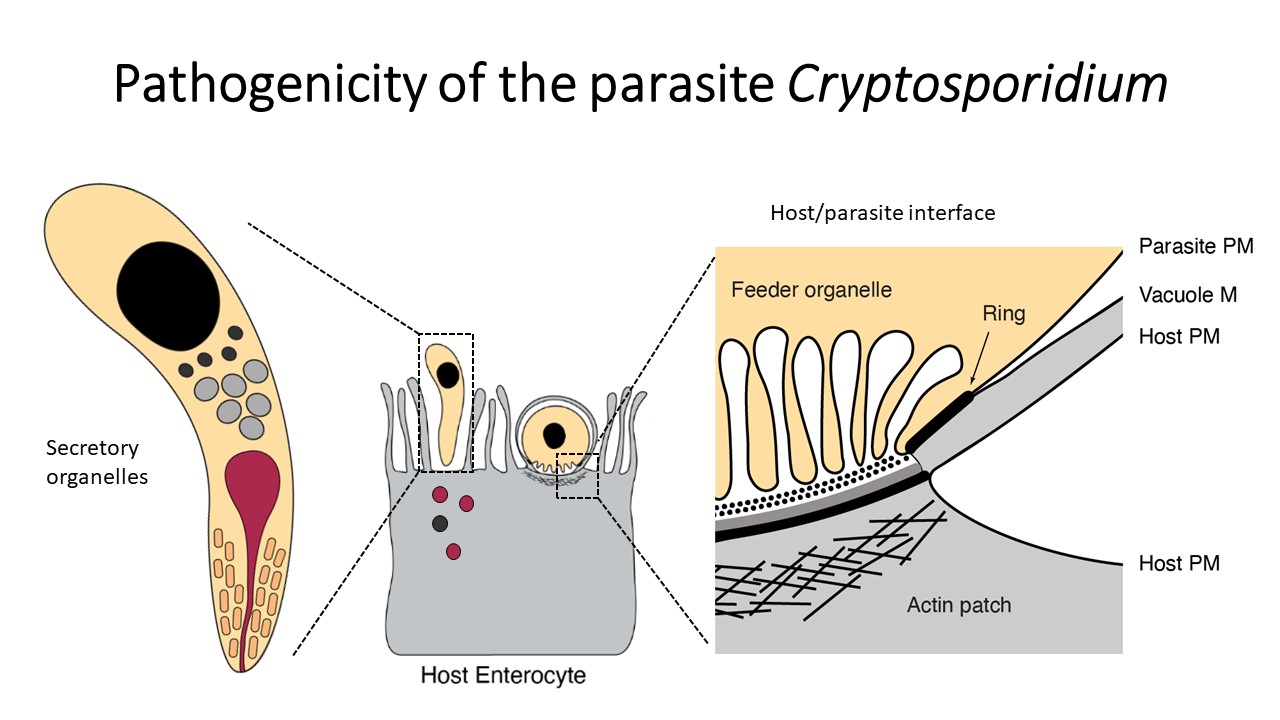[1046] Pathogenicity of the parasite Cryptosporidium
Cryptosporidium is a leading cause of diarrheal diseases and death in infants, and no vaccine or efficient drugs are available. The parasite is an obligatory intracellular pathogen that infects epithelial cells of the intestine and resides inside a vacuole. It hijacks the host cell to its own advantage notably via the formation of a host actin pedestal and a complex interface. Additional modifications of the host cell include the remodelling of membranes during invasion, the destabilization of epithelial cell junctions and the shortening of microvilli that contribute to the diarrheal symptoms. Subverting host cell functions is essential for Cryptosporidium invasion and survival but poorly characterized. Understanding how the parasite achieves it is the main goal of this research.

